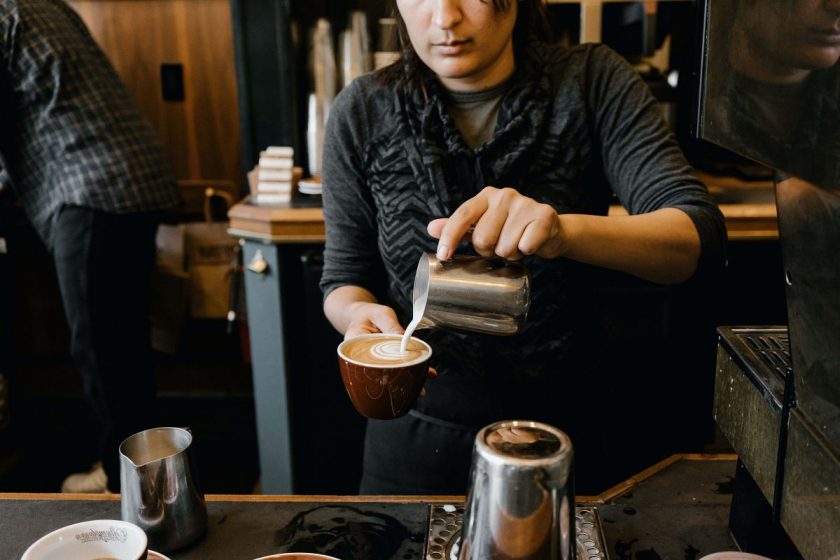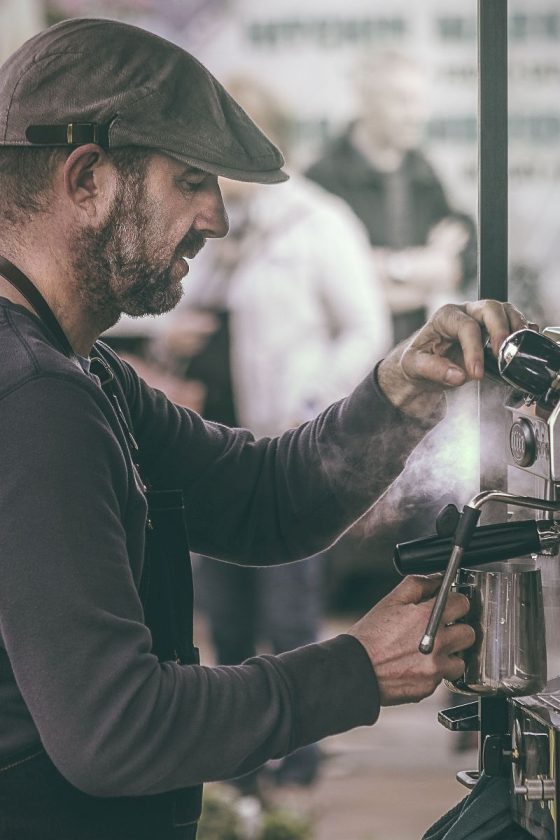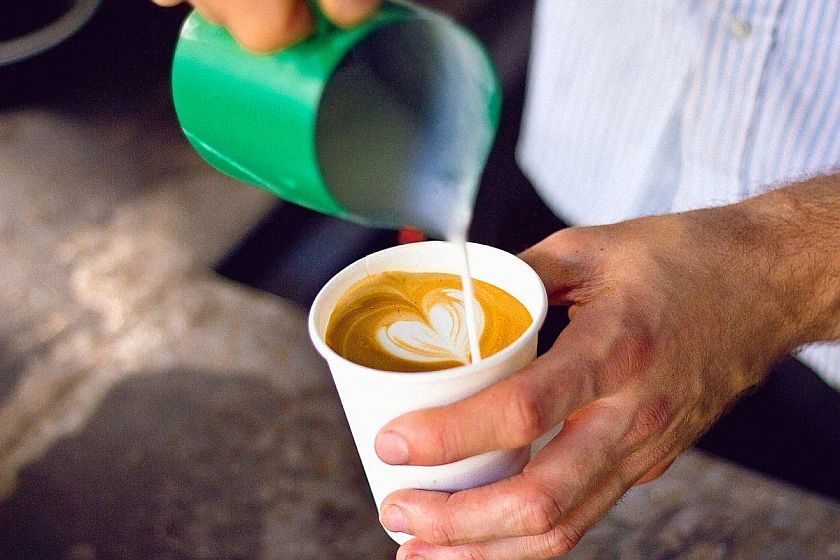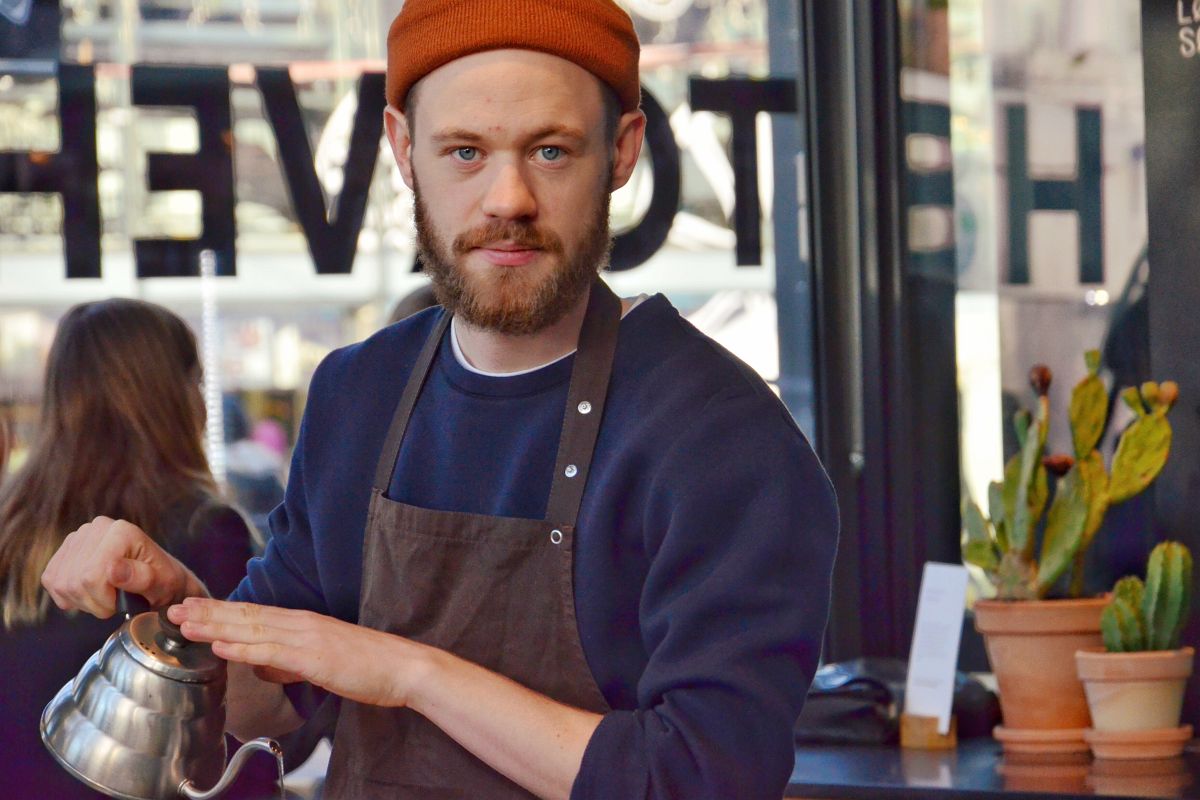Coffee industry is booming, and even with the dent made by the quarantines and lockdowns, coffee shops are still a the choice of hospitality establishment for many people looking for a place to relax. No wonder that the barista job is still in high demand.
In this article, we will show you what is a barista, what skills a barista needs to have, and why coffee knowledge is great even if you don't want to work in the coffee industry.
If you wondered what a barista does, or what it takes to become one, wonder no more!

What Is A Barista?
A barista is a coffee professional who is responsible for preparing and serving coffee beverages. A barista must have extensive knowledge of different types of coffee, brewing methods, and flavor profiles. They must also be skilled in operating various types of coffee equipment. In addition to these technical skills, a successful barista must also have excellent customer service skills.
Many times the word barista is used to describe someone specialized in making espresso drinks, the actual meaning includes preparing any coffee drinks.
Where does the Word Barista Come from?
The barista word come from Italian. The Italian world is literally translated as a bar keeper, bartender. In Italian, barista, (or baristi the plural), is any person behind the bar. In English, the word is reserved for the person behind the bar of a coffee shop.
Why Barista Training is Important?
Barista training is essential for anyone who wants to work in a coffee shop. There are many different barista courses available, and it is important to find one that suits your needs and level of experience.

A good barista course will teach you the skills you need to know to be successful in this field. It will also give you the opportunity to practice your skills in a real-world setting.
Some of the skills that you will learn during barista training include:
- Coffee brewing methods
- Different types of coffee beans and their flavor profiles
- How to operate different types of coffee equipment
- Customer service skills
- Some applied chemistry to give you a better understanding of the coffee brewing and extraction
Coffee shops are places where people go to relax and enjoy a cup of coffee. They're great places to hang out and meet friends. In the end, what makes a good coffee shop experience isn't just about the coffee. It's about the atmosphere and how friendly and welcoming the staff is.
The onsite barista training is a good option, and for many coffee shops is the preferred option. If you have the opportunity, there is not reason not to jump on it. However, onsite training will often leave holes in your skills and knowledge.
You have to be a career oriented person, who actively looks to improve their knowledge and skills, to fill these gaps.
Without training, your work as a barista will lack.
Barista Job Description
A barista needs to learn recipes, and remember the names and the recipes of 30 or more coffee drinks.

First things first, they need to know the names of the all the most popular espresso drinks – and what exactly is an espresso and how does it differ from the kind of coffee you can find at any diner or gas station (aka drip coffee)? Baristas also need to prepare espresso drinks, froth and steam milk, operate espresso machines. An automatic espresso machine will flatten the learning curve, and make the operators more productive. However, some coffee shops prefer to craft specialty coffee, and the use of a semiautomatic espresso machine is needed.
Steaming and frothing milk and pulling perfect espresso shots with a semiautomatic espresso machine is more complicated, and it's better understood as a trade, if the barista has the chemistry and physics knowledge behind coffee extraction.
Mastering various coffee brewing methods and understanding the science behind coffee extraction and how to change a recipe to tweak for a customer preference is very important.
Being current with the newer coffee trends, such as manual coffee brewing is also a great way to please customers and grow sales.
Baristas need to clean the coffee bar, coffee machines, and all other equipment.
Being objective and understanding the subjectivity of coffee brewing is also part of the job. Some people need a quick caffeine fix, and the coffee pot left for 30 minutes on the hot plate is fine. Other people want a special order of pour over, not too strong, and prepared with Kenya AA coffee beans.
A barista is as any hospitality employee needs great customer skills. No coffee shop wants unhappy customers.
Some of the customer service skills are communication, problem solving, act with patience and understanding in order to ensure customer satisfaction, and resolve any complaints that customer might have.
A person working in hospitality also needs some more soft skills, in order to interact properly with customers. These soft skills include positive attitude, self-motivation, decision making, teamwork skills, sense of humor.
How Much A Barista Makes

The average base salary for a barista in the US is $14 per hour, which doesn't sound like a lot. However, some coffee shops pay more, and you have to take in consideration the tips, which can be considerable in certain areas.
Experienced baristas will earn more, because they can make more tips. Their experience gives them the ability to cater better to the various clientele.
Also, coffee shop owners relay on the more experienced baristas to run the shop for them, to train new employees,
The head barista is also in constant look for new recipes, and signature beverages, in order to attract and retain customers.
Final Word
As you can see, there is a lot that goes into becoming a barista. However, if you have a passion for coffee and customer service, then this could be the perfect career for you! So, what are you waiting for? Start your barista training today!
I think that a barista course would benefit anyone who want to learn more about coffee, even if they don't necessarily want to make a career in the coffee industry.
Coffee lovers could benefit from the knowledge acquired in a formal barista training course, and apply that to their day to day coffee making activity.
Do you have what it takes to become a barista? Let us know in the comments below!
